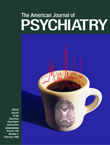This work of extraordinary scholarship informs us in a footnote on the first page that the word “aphasia” was coined by Armand Trousseau in 1864. “Who cares?” you say? Then this is probably not the book for you. On the other hand, for those of you who are interested in Freud’s 1891 book on aphasia, his predecessors and contemporaries in the study of aphasia, and the influence his book and its “sources” had on Freud’s subsequent development of psychoanalysis, this is an astonishingly well-researched and well-documented book.
Valerie Greenberg, who shows a sophisticated understanding of the clinical and neurological details of aphasia, is not a physician but a professor of German at Tulane University in New Orleans. In fact, she underlines the “prelapsarian” interdisciplinary nature of the nineteenth-century study of aphasia, and she argues that “the permeability of boundaries, their sometime violation, and the mixing of disciplinary discourse [was] the hallmark of Freud’s creativity” (p. 17). She ambitiously undertakes to examine several interrelated questions about Freud’s aphasia book. For example, as she looks at Freud’s sources on aphasia, she examines not only Freud’s respective agreements and disagreements with each author but also such details as whether Freud favored British authors because he agreed with their theories about aphasia or because of his “anglophilia.” (My effort to look up the reference for this statement in the book, however, highlighted a weakness of the index—it is essentially an index of proper names.)
Although her book’s subtitle refers to the Sources of Psychoanalysis, Greenberg writes enigmatically of the “discredited term influences” (p. 9). I was unaware that this term has been discredited—in the humanities, I assume. Greenberg argues that the current literature on aphasia fails to give Freud adequate credit for his contributions, despite the fact that he anticipated significant aspects of this current literature. As a central example, Freud argued against the excessive attribution of specific symptoms of aphasia to specific anatomical lesions in the brain. Greenberg offers some intriguing speculations about this failure to acknowledge Freud’s contributions, including the possibility that his later psychoanalytic work “delegitimated” his aphasia book.
When Greenberg speculates about hitherto unacknowledged influences of other “aphasiologists” on psychoanalysis, she characteristically frames her hypotheses as questions (several of which struck me as questionable indeed—see page 54 on Delbr�ck and the Oedipus complex). Further, as she searches for such sources of psychoanalytic concepts in aphasiology, she tends to blur important distinctions, such as that between nonconscious mental processes and the dynamic unconscious. Greenberg notes that “unconventional, defiant, or even quirky patterns of thought…attracted Freud” (p. 89). I found it intriguing on the same page (p. 119) that she mentions Freud’s “defiant attitude toward authorities,” she also takes a potshot at James Strachey, Freud’s official translator. Elsewhere, she suggests that Strachey should have included Freud’s aphasia book in his Complete Psychological Works (the so-called standard edition). Rather than accept Strachey’s perfectly plausible explanation that he included only Freud’s psychological writings and not his numerous articles and books on neurological topics, Greenberg speculates that Strachey omitted the aphasia book because he “seemed to want to sever Freud from his origins…. In particular, he wanted to make Freud purely a figure of the twentieth century…leaving his academic (read: central European) origins behind” (p. 127). Despite her penchant for such unconventional (if not quirky) speculations, Greenberg has produced an impressive book that will have lasting scholarly value.

